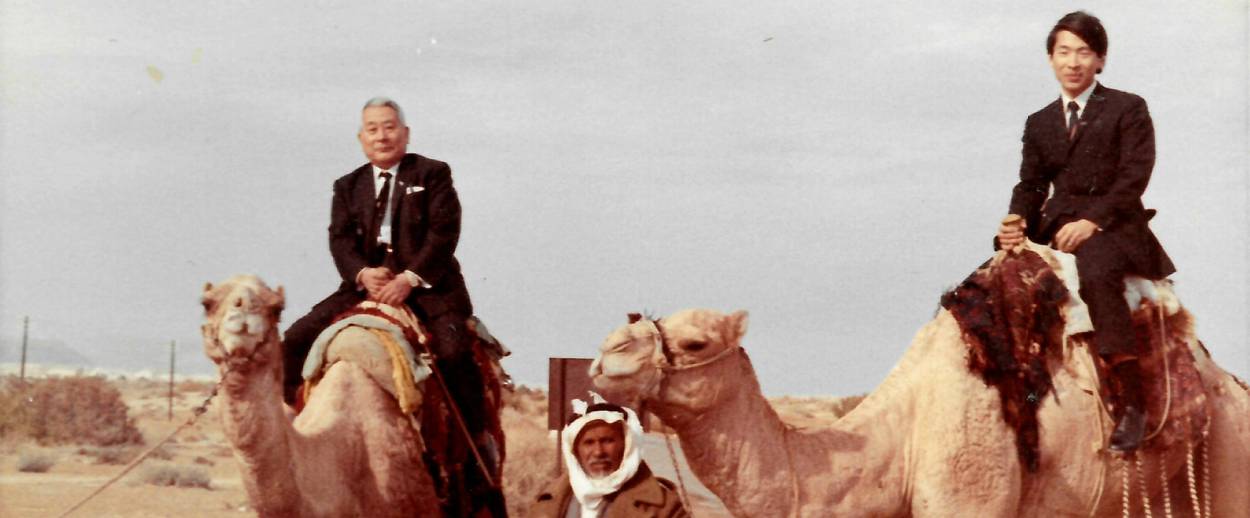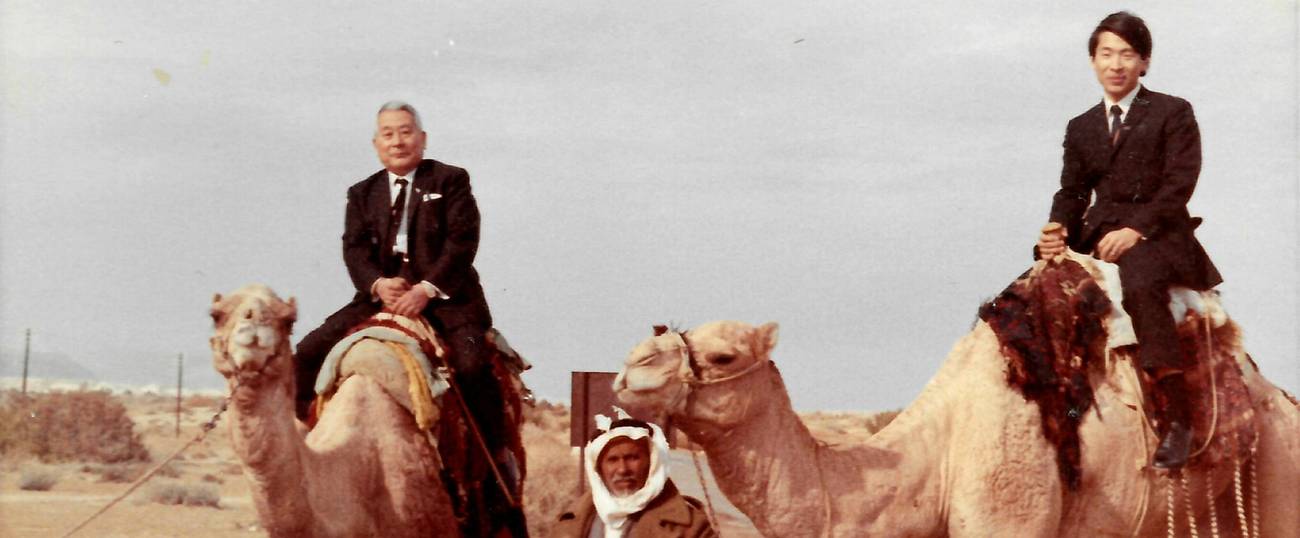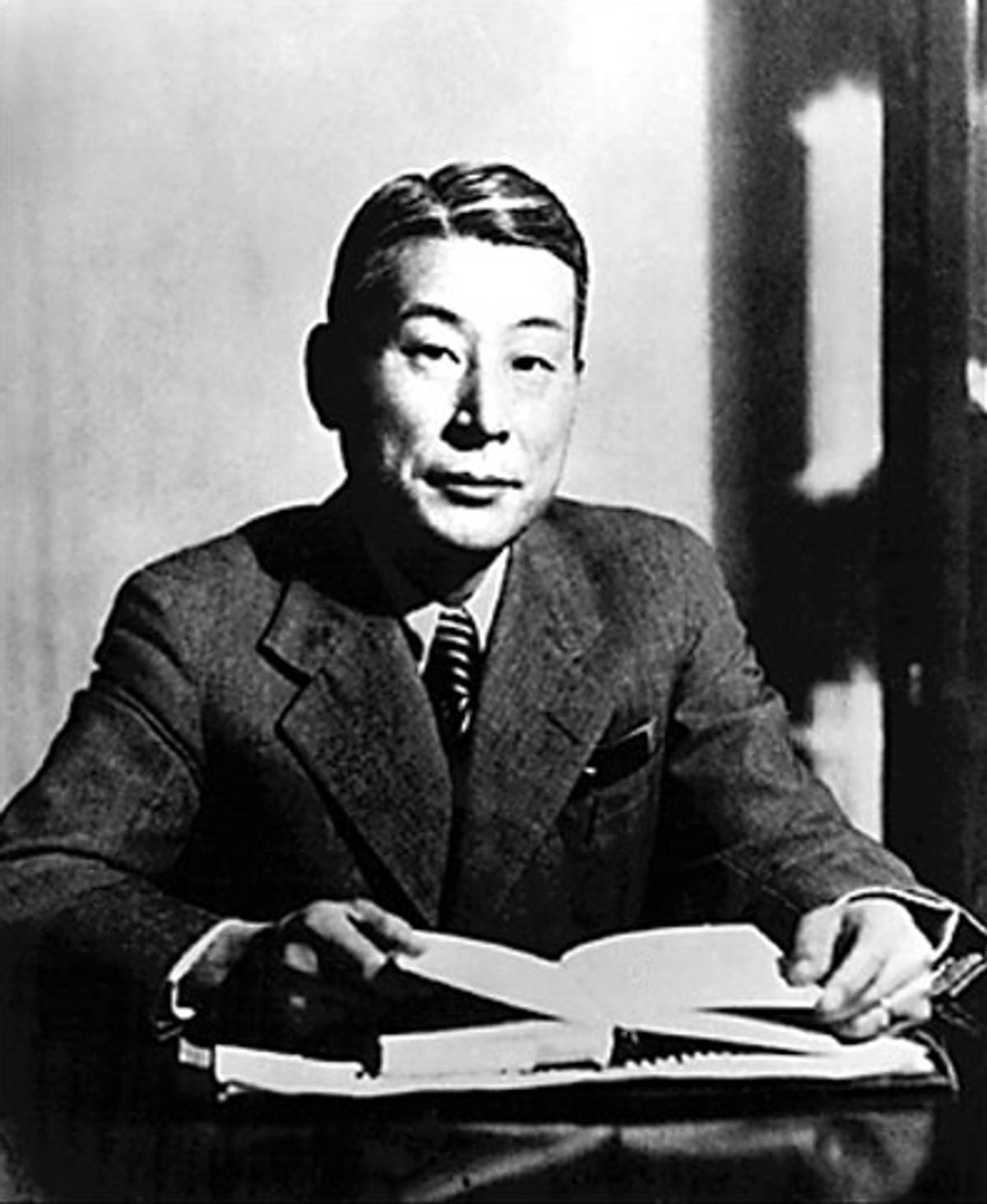Honoring Chiune Sugihara, Righteous Among the Nations
A ceremony in D.C. paid respect to the Japanese diplomat who saved my mother’s life




When my mother Masha, who passed away on April 5, talked about her harrowing flight from Nazi-occupied Warsaw, across Poland, Belarus, Lithuania, and Soviet Russia to sanctuary in Japan, the words “Uncle Sam has arrived” were always part of her story. While in hiding in Vilnius, my grandmother would travel at night to Kaunas and wait outside the Japanese Consulate, hoping to get one of the visas Japanese Consul Chiune Sugihara was writing. One day there came a telegram, “Uncle Sam has arrived”—a Sugihara visa. And it was then that my grandmother told my mother, “We’re going to Japan.”
So it was quite fitting when, on April 20, I went to the U.S. Department of State Harry S. Truman building in Washington, D.C. to attend its Holocaust Remembrance Day program in my mother’s stead—to honor the heroic Sugihara, since his life-saving visa brought her to Japan and ultimately the United States.
The program brought together the diplomatic community to honor the work of one of its own. As The Special Envoy for Holocaust Issues, Thomas Yazdgerdi, said in his opening remarks, “The State Department organizes an event every year for our employees but this year… We remember the greatest work of a great humanitarian, Chiune Sugihara, recognized by Yad Vashem as one of the Righteous Among the Nations for saving the lives of so many Jews and others.”

Yazdgerdi’s office sponsored the event with The Office of Civil Rights, The Office of International Religious Freedom, and The Office of Religion and Global Affairs together with representatives of the Embassies of Lithuania, Japan, and Israel. Among those present were diplomats from Germany and Italy, director of the U.S. Holocaust Memorial Museum Sara J. Bloomfield, and Sugihara survivor Nathan Lewin, who brought his original transit visa (#17; my mother’s was #1882). Lewin’s was one of the 2,139 visas that Japanese diplomat Sugihara issued in Kaunas, Lithuania in 1940-41 against his government’s orders, for 6,000 Jewish refugees. Sugihara and Dutch consul Jan Zwartenjijk together devised a plan for a transit visa through Japan with a false destination to Curaçao in the Dutch West Indies.
Sugihara’s story is one of defiance. He defied his father, choosing to become a diplomat rather than a doctor. He later became a Greek Orthodox Christian, as did his wife Yukiko. After being recalled from his post in Kaunas and departing the city, Sugihara, with his wife’s urging, kept signing and tossing those precious documents out the train window into waiting hands. In 1989 my mother met Yukiko and so wanted to give her hug of gratitude. When in 1994 we traveled with her for the special memorial ceremony for Sugihara at The Hill of Humanity in Yoatsu near Tokyo, there, in a welcomed rare breach of Japanese decorum, my mother hugged her.
The event’s keynote speaker was my mother’s childhood friend, Sugihara survivor Leo Melamed, Chairman Emeritus of the CME Group (formerly the Chicago Mercantile Exchange). As a 7-year-old, Leo attended my mother’s 9th birthday party in Vilnius, Lithuania. And of the 26 children in her March 1940 party photo, only she, Leo, and three others lived—thanks to Sugihara visas.
Melamed shared his story of survival and the important role Sugihara played in it. He described how 2,000 Jews in his hometown of Bialystok, including “his two grandmothers, and his father’s only sister,” were herded by armed Nazi troops into the great synagogue and sealed in when the building was doused with gasoline and set ablaze. Leo and his mother were on the last train from Bialystok to Vilnius. “Fate chose that I should survive,” he said. “Our miraculous escape made possible by Chiune Sugihara spanned two years, three contents, six languages, the Trans-Siberian Railroad across all of Siberia to Vladivostok, then to Tsuruga Japan, and finally the U.S. In this circuitous fashion, I was among the fortunate few who escaped the unspeakable horrors in Europe.”
Like Melamed, my mother too had a journey that spanned time, continents, and languages. At the age of 8, fleeing bombed out Warsaw with my grandmother Zelda, my mother experienced the nightmare of being betrayed while in a wagon full of women and children delivered right to a Nazi headquarters. They were lined up against a wall, were given numbers, and stood all night in the cold rain. At dawn the soldiers shot 1,3, 5, 7… my mother and grandmother were 2 and 4 and let go.
Yet, on their journey through swamps and forests, my mother owed her life to the kindness and courage of strangers. To a Polish woman who hid them in her hay wagon, then in her home risking her life, for to hide a Jew was a death sentence in Poland. She told my grandmother it was her Christian duty and that during WWI someone had saved her life: she was repaying the debt. A young Russian soldier was going to shoot them but for her Russian name Masha (he had a sister also Masha) he brought them to headquarters, where they were fed and taken to the train station in Bialystok.
Arriving in Byten, my mother was reunited with her father and then had to flee again to Vilnius because her father was wanted by the Soviets as an anti-Communist journalist. He was arrested and eventually sent to Siberia. My mother changed her identity and went into hiding in a room behind a piano. My mother’s family in Byten, all 220 souls, were murdered by Nazi execution squads. My mother was her grandfather’s 23rd grandchild. While in hiding in Vilnius, my grandmother secured the Sugihara visa. My mother went on to celebrate her 10th birthday in Kobe. Leo left early for the U.S., and my mother to Canada on the last ship before Pearl Harbor.
“An instinctive reaction that you feel is the right thing to do, describes perfectly what Chiune Sugihara did in August of 1940, as the Counsel General of Japan in Kaunas Lithuania,” Melamed said. “Here were several thousand Jews who had somehow managed to escape their fate but now found themselves trapped by history. Their only crime was being Jewish.”
Melamed shared that he met Sugihara’s son Hiroki at a symposium in Japan. “He devoted his life to the memory of his father and his deeds and he asked me if I would give him help and assistance. I carry out the mission to this very day in every way possible. Anything that was asked of me and Masha Leon, my friend who recently passed away we did down to this day.”
Alongside Melamed’s story were remarks from Rolandas Kriščiūnas, the Lithuanian Ambassador to the United States who recalled learning of the Holocaust. “It seemed at that time inconceivable and still seems inconceivable that it happened, something this terrible happened 25 years before my birth. Six-thousand Jews were saved by Sugihara visas, I’m very happy for the 6,000 and their relatives, but we should not forget that 6,000,000 didn’t make it. And looking at my country, I’m very deeply saddened that 95 percent of the Jewish population of my country was destroyed. It’s a huge loss to Lithuania, huge loss to the world.”
Before a screening of Persona Non Grata, Cellin Gluck’s film about Sugihara, Ambassador Arnold Chacon, Director General of the Foreign Service offered closing remarks. “The eyewitness testimony of survivors like Leo Melamed and the brave actions of men and women like Chiune Sugihara remind us all of the horrors of the Holocaust but also the ways in which we can continue to learn from it,” he said.
“Our shared challenge in the years ahead is in keeping the memory of the Holocaust alive for young generations and generations to come… The registry of Holocaust survivors of the U.S. Holocaust Memorial Museum contains the names of over 195,000 survivors and family members. A growing number of these brave men and women are leaving us and will leave in the years to come. So it is up to all of us to continue to share their stories… It’s hard to believe it’s been over 70 years since the horrors of the Holocaust. But we also know that the past is never past, its lessons are etched in our collective memory. The responsibility is ours.”
Previous: Chiune Sugihara, the Japanese Diplomat Who Saved Thousands from the Nazis, Gets His Own Movie
Related: From Japan With Love
Karen Leon is a photographer, cartoonist, and illustrator. Her photos regularly accompanied Masha Leon’s columns in The Forward and Tablet. She is currently working on the biography of her mother.